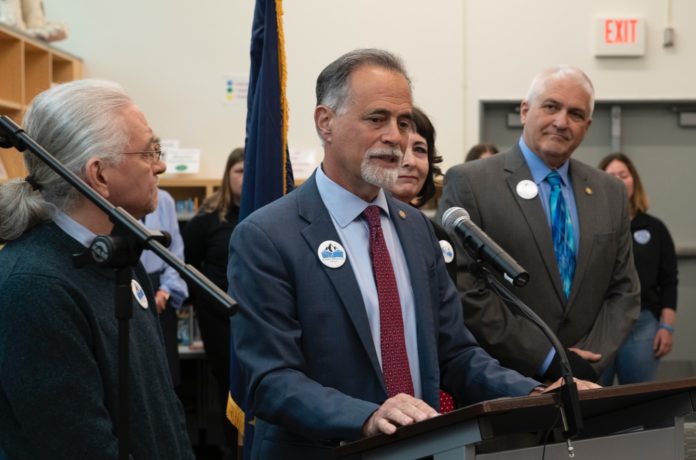By BETHANY MARCUM
As is often the case, there was no shortage of bills introduced to the 32nd Legislature (which comprises 2021 and 2022). Not counting resolutions, legislators introduced 690. Those that did not pass both bodies by the end of the 4thSpecial Session in 2021 were still in play in 2022, and when all was said and done, 74 completed the process.
More important than a list of what bills crossed the legislative finish line in 2022 is the question of what good and bad policy reforms the legislature enacted. This analysis is not comprehensive because keeping up with Juneau antics is a daunting task, but what follows are some highlights. Readers who take an interest in any of the policies should remember that nothing is final until signed by the governor, who maintains veto authority.
For context, Alaska Policy Forum is all about freedom. Bills are good when they bring more freedom to people. Our vision is an Alaska that continuously maximizes individual opportunities and freedom on a path toward prosperity. More specifically, we operate under seven principles of sound public policy, which provide the lens through which we evaluate the following outcomes of 2022 legislative activity.
Because literacy is a foundation for understanding freedom, the best policy reform to make its way through the legislature in 2022 was the Alaska Reads Act. This nonpartisan reform passed the Senate unanimously (twice!) and squeezed out of the House by a single vote. It creates a comprehensive statewide K–12 reading policy to improve Alaska’s dismal outcomes. We certainly do not like everything in the bill, but we fully support reforms that ensure education dollars are spent in ways that develop reading proficiency for students.
Another very good outcome of this legislature was not creating a new defined benefits pension tier for state employees. More than one bill was introduced to do so, and advocates deployed many tactics to propel the dangerous change. Thankfully, all attempts failed, and at least for now, Alaska has steered clear of proposals that would bring great fiscal risk to the state and threaten retirement benefits already promised to retirees.
A surprising bright spot: Inaction on a bill that would have capped political contributions. A 2021 ruling by the Ninth Circuit Court struck down Alaska’s previous campaign donation limits. We agree with those who contend that laws to “regulate political spending and contributions . . . violate the right to free speech and ultimately diminish citizens’ power.”
Additionally, legislators made a small step toward cutting back on bureaucratic excess with a bill that attempts to eliminate “outdated, duplicative, or excessive” government publications. Allowing some documents to be delivered electronically saves state funds.
Progress was also made toward improved transparency of state spending by way of the Alaska Online Checkbook Act, which passed without a single legislator voting against it. That’s quite an accomplishment! APF fully supports the intent of this policy reform but would be remiss if we did not point out a glaring omission: The largest chunk of dollars the state spends goes directly to the 53 school districts; most other spending looks miniscule by comparison. Contrary to the principle of open government, those school districts’ appropriations are a closed book, providing no clear picture of how the funds are spent.
Some bills survived the legislative session with both good and bad elements.
One proposal gives the state Board of Pharmacy authority to continue practices started during the COVID pandemic — notably, allowing pharmacists to prescribe vaccines and emergency medications. Giving health care professionals tools to meet the needs of the market is indeed a welcome step. However, in doing so, the legislature also took the opportunity to widen the scope and authority of a government regulatory board, once again showing that most of our elected officials do not trust the power of the free market.
Another bill passed with the intention of alleviating Alaska’s teacher shortage. That lawmakers have identified this problem is good news, and the bill took some steps in the right direction. Even the name sounds great: “Out of state teacher reciprocity.” But once again, policymakers showed their fear of the market’s ability to self-correct. Rather than simply recognizing licenses in good standing from other states, the bill gives such teachers a two-year pass while they teach in Alaska. It still requires them to complete Alaska’s more-onerous requirements to maintain licensure. The education special interest groups win again.
Regrettably, no bills of consequence were passed to drive down Alaska’s incredibly high health care costs. Two that would have helped — repealing Alaska’s certificate of need requirements and protecting direct care arrangements between medical providers and patients — remained stuck in committee when the legislature gaveled out.
While over 60 bills were introduced dealing with Alaska’s elections, not one of consequence passed. At a time when a majority of voters in our state support election audits, requiring a photo ID to vote in person, and signature verification of ballots, the legislature could not manage to pass even one small improvement to address their concerns.
Lastly, fiscal restraint took a back seat in 2022. The budget that passed for 2023 was massive: 65% more than APF’s Responsible Alaska Budget amount and a 37% increase over last year’s budget. We’ll weigh in on the final budget after the governor has had a chance to issue vetoes, but in the meantime, we were disappointed that legislators took no statutory action on an appropriation limit of any sort.
While many elected officials campaigned on this very issue and the Alaska Chamber has made a “meaningful spending cap on operating budget expenditures” a policy priority year after year, another session has passed with no progress. Until Alaska gets its fiscal house in order, our economy will continue to be disadvantaged and the handful of good bills that manage to make their way into law will not be enough to fill the civic hole.
Bethany Marcum is chief executive officer of Alaska Policy Forum.
